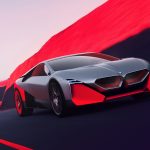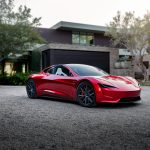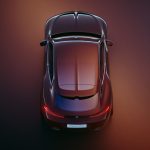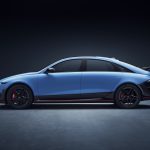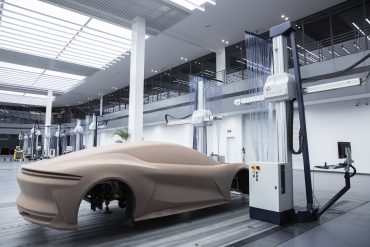
- Mobility & Transportation
BYD Surpasses Tesla as Global EV Leader in Sales Volume
5 minute read

Chinese automaker BYD leverages manufacturing scale and diverse product lineup to outpace Tesla’s global electric vehicle deliveries
Key Takeaways
- BYD outsells Tesla by nearly 3:1 in Q2 2025 with 1.13 million plugin vehicles sold compared to Tesla’s 384,122 units
- BYD overtakes Tesla in Europe for the first time in April 2025, registering more pure electric cars despite Tesla’s years of European market leadership
- Chinese automaker achieves 359% growth in European sales while Tesla experiences 49% year-on-year decline in April volumes
Introduction
BYD has decisively overtaken Tesla as the world’s leading electric vehicle manufacturer, marking a fundamental shift in the global automotive landscape. The Chinese automaker delivered 1.85 million vehicles in the first nine months of this year, surpassing Tesla’s 1.66 million units and ending the American company’s dominance that lasted from 2018 to 2022.
This achievement represents more than just a sales milestone. BYD’s rise signals the emergence of Chinese manufacturers as formidable competitors in the premium EV segment, challenging Western automakers’ technological and market leadership.
Key Developments
The competitive dynamics between these electric vehicle giants have transformed dramatically. Tesla maintained its position as the undisputed battery electric vehicle leader for four consecutive years before BYD’s aggressive expansion began eroding that advantage.
BYD’s strategy centers on product diversification and market accessibility. The company offers both fully electric vehicles and plug-in hybrids across multiple price points, enabling it to capture a broader customer base than Tesla’s premium-focused approach.
The Chinese manufacturer’s vertical integration strategy has proven particularly effective. BYD manufactures its own batteries, chips, and key vehicle components, reducing supplier dependence and enabling competitive pricing that appeals to mass-market consumers.
Market Impact
European markets demonstrate the most striking evidence of this competitive shift. Financial Times reports BYD registered more pure electric cars than Tesla in Europe for the first time in April, achieving 359% growth while Tesla’s volumes declined 49% year-on-year.
Chinese manufacturers now account for 26% of new car registrations in Europe, with plug-in hybrid sales from Chinese brands surging 546% year-on-year. This growth has enabled BYD to outsell established European brands including Fiat, Dacia, and Seat in several markets.
BYD’s export sales outside China have risen 26% year-on-year, demonstrating the company’s successful global expansion beyond its domestic stronghold.
Strategic Insights
The competition reveals contrasting business philosophies. Tesla positions itself as a technology company that manufactures vehicles, emphasizing software integration and autonomous driving capabilities. BYD focuses on manufacturing efficiency and cost optimization to serve mass-market demand.
BYD’s Blade Battery technology, introduced in 2020, supports ultra-fast charging and enhanced safety features. Tesla continues developing its cylindrical 4680 battery cells designed to minimize weight and maximize energy density.
The strategic implications extend beyond these two companies. BYD’s success validates the Chinese government’s long-term investment in electric vehicle infrastructure and manufacturing capabilities, while pressuring Western automakers to accelerate cost reduction and innovation efforts.
Expert Opinions and Data
Felipe Munoz, Global Analyst at JATO Dynamics, emphasizes the significance of recent market changes. “Although the difference between the two brands’ monthly sales totals may be small, the implications are enormous. This is a watershed moment for Europe’s car market, particularly when you consider that Tesla has led the European BEV market for years, while BYD only officially began operations beyond Norway and the Netherlands in late 2022.”
Even Elon Musk acknowledges BYD’s competitive threat, suggesting potential shifts in Tesla’s market strategies. Industry analysts view BYD’s expansion as pressuring established Western automakers to accelerate innovation and cost reduction initiatives.
Both companies face ongoing challenges including supply chain disruptions and fluctuating raw material prices, but their continuous adaptation to consumer trends demonstrates their commitment to leading the electric vehicle transformation.
Conclusion
BYD’s combination of manufacturing scale, cost efficiency, and rapid global expansion has fundamentally altered competitive dynamics in the electric vehicle market. The Chinese automaker’s ability to offer diverse product lines at accessible price points positions it well for sustained growth.
This shift creates positive outcomes for consumers through increased choice, improved technology, and competitive pricing. The battle between BYD and Tesla now extends beyond vehicle sales to encompass autonomous driving technology and electric mobility services, reshaping the entire automotive industry’s future direction.

